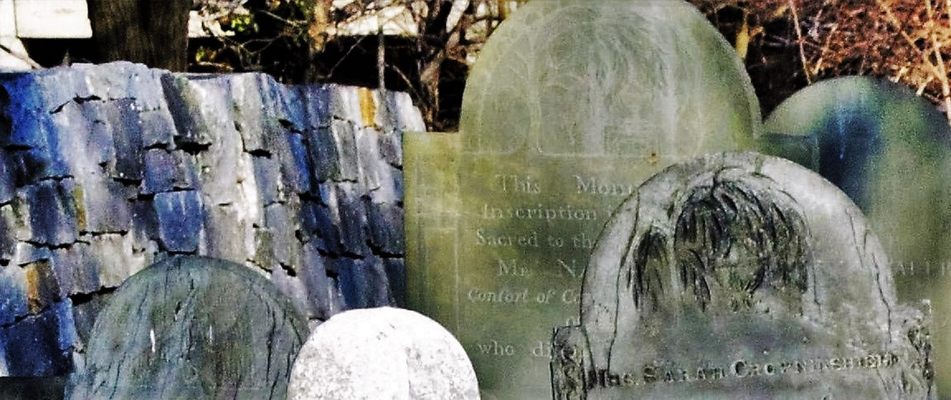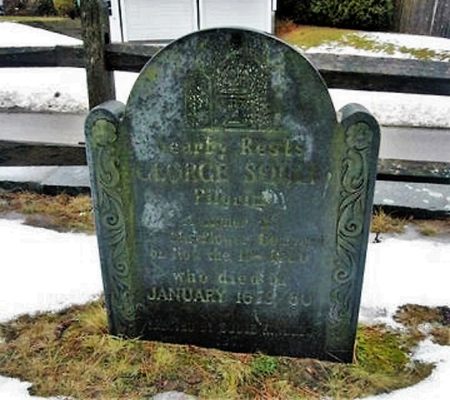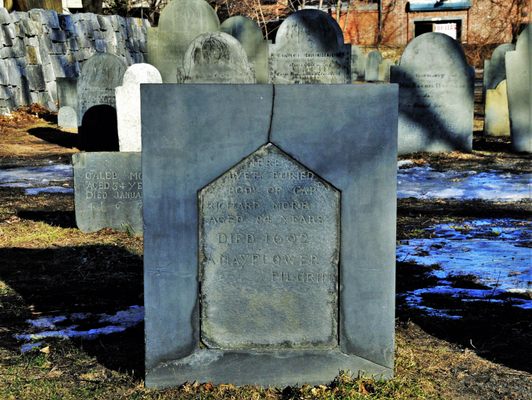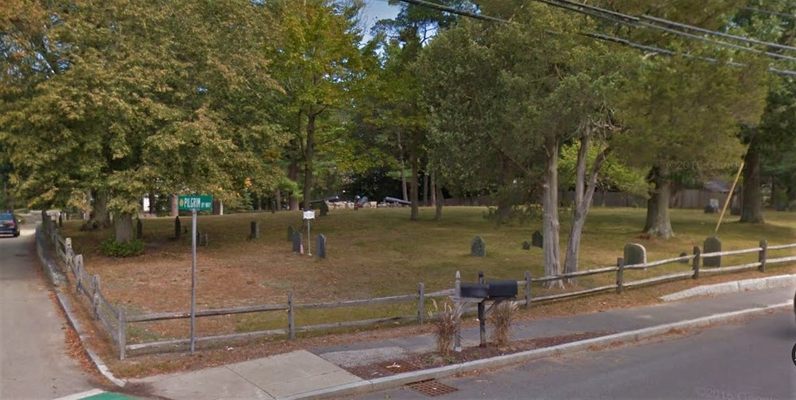About
Grab your Pilgrim hat and buckle your shoes—the story of the remains of Myles Standish is a saga that spans nearly three centuries.
Myles Standish was a passenger on the Mayflower when it sailed to Plymouth in 1620, but at 36 years old, with his auburn locks and hair-trigger temper, he was no Pilgrim. He was hired by the more pious passengers to be their military commander, a position he held until retirement in the new town of Duxbury, ten miles up the coast.
Standish lived out the rest of his life here, and in 1656 was buried—somewhere—and he quietly slipped away from most people’s minds for the next 200 years. It took a poem by Henry Wadsworth Longfellow to make the once-fiery redhead hot again, with “The Courtship of Miles Standish.” When the poem was published in 1858, the love triangle of Standish, John Alden, and Priscilla Mullins helped to reignite a public passion for the early colonial days.
In the late 19th century, the town of Duxbury wanted to find their favorite son, but by then the old burial ground had been nearly abandoned, alternately overgrown by brambles and trampled by wandering cows. It was known that Standish and the Aldens were buried there (Priscilla had made her choice in the poem, and it wasn’t poor Myles), but with no good records to say where exactly, it took some digging. Literally.
A spot marked with two sharply pointed stones was eyed as a likely candidate, and in 1889 out came the shovels. Two bodies were found, but their identities were inconclusive. Two years later a second attempt discovered three bodies: an older man between two young women. Local historians knew that the Standish will had instructed for a burial between his daughter and daughter-in-law, so the arrangement of the bodies was taken as proof: here lies the body of Myles Standish. In 1893 a memorial was constructed to mark the spot.
All seemed quiet and settled—until 1931. After the 1891 exhumation, Standish had been placed in a plain pine box for re-interment, a grave error in the eyes of the town selectmen and Standish family descendants. They dug again, and this time placed the remains in a sealed copper coffin within a solid concrete vault.
Four burials, four cannons, a Longfellow poem… and one epic graveyard tale.
Related Tags
Know Before You Go
Duxbury is on Cape Cod Bay, about 10 miles north of Plymouth Rock and 35 miles south of Boston. The Burial ground is a short quarter-mile walk heading west on Chestnut Street from the flagpole rotary at the center of town. The Standish memorial is easily identifiable by the cannons around it. It’s not entirely clear that the final burial in 1931 was really intended to be final at all – along with the copper coffin there was a time capsule placed in the vault. Maybe there will be another dig some day.
Community Contributors
Added By
Published
October 18, 2016








































